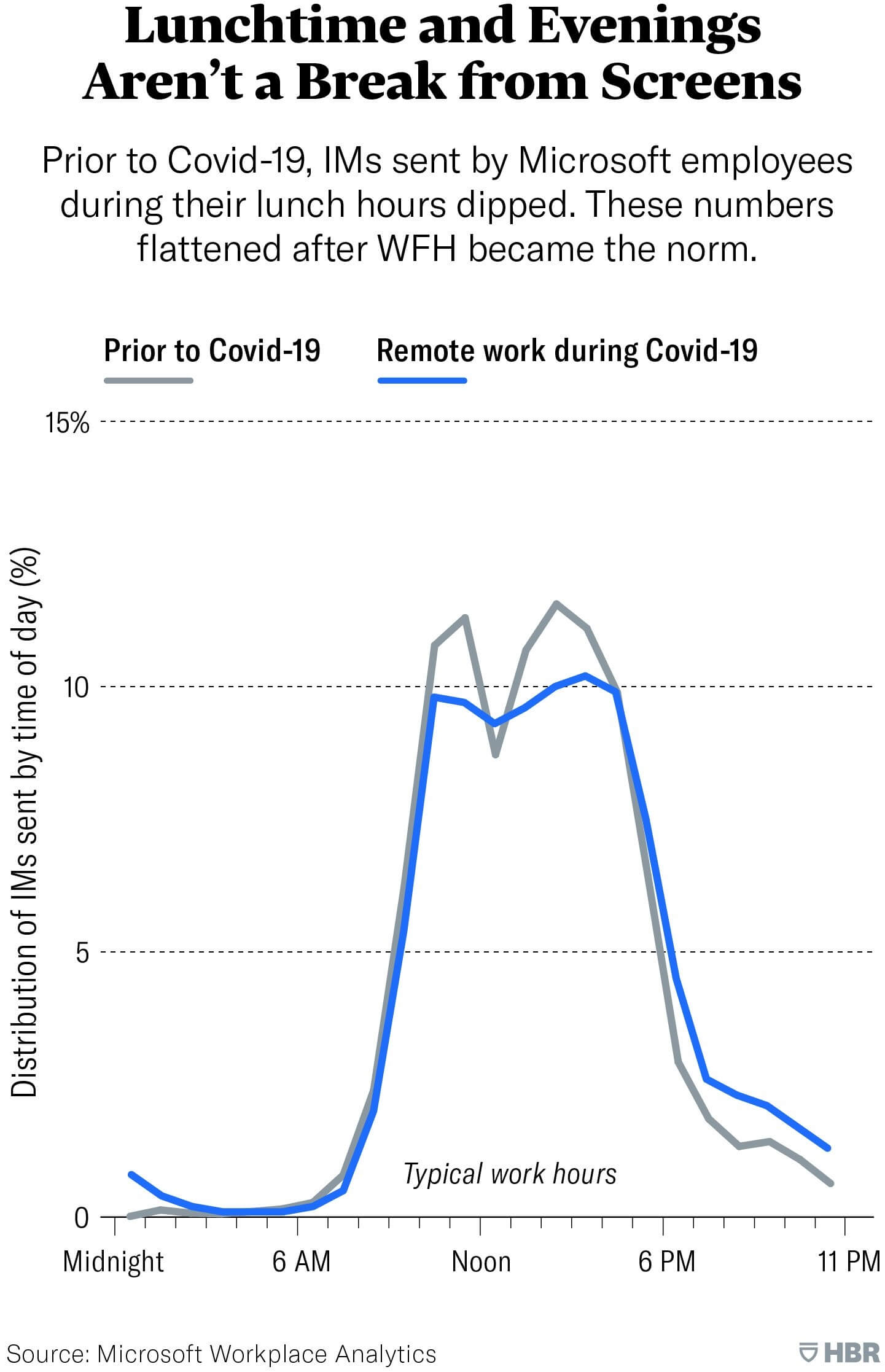In a nutshell: The Coronavirus pandemic means millions of people have suddenly found themselves leaving the office behind and working from home. Some might prefer the situation, but a new study has uncovered a few negatives: employees are working longer and often late into the night.

The study comes from Microsoft, which examined the effects of working from home on 350 of its employees. The results, published in Harvard Business Review, are quite an eye opener.
By looking at de-identified email, calendar, and instant messaging metadata, and comparing it to metadata from before the pandemic, the study found that people were "on" four more hours per week, on average.
It's believed that the reason behind these extra working hours is people taking personal time to care for children, walk the dog, have some fresh air, etc. To make up for these breaks, employees are starting work earlier and signing off later.
Another interesting finding is related to meetings. People are spending 10 percent more time in them, likely due to not bumping into colleagues at the office, but the length of meetings decreased. There were 22 percent more meetings of 30 minutes or less and 11 percent fewer meetings of more than one hour. According to employees, "Our flip to shorter meetings had come about organically, not from any management mandate."
Working from home means managers are communicating more with employees. They sent 115 percent more instant messages, compared to 50 percent more for individual contributors. Additionally, afternoon meetings have taken the place of early morning ones, and IMs saw a 10 percent reduction during the lunch hour, while before the lockdown it was 25 percent.
As people try to catch up on work, a new "night shift" pattern has emerged in which the number of IMs sent between 6 PM and midnight increased 52 percent. The study also showed people who previously worked the least amount of time on weekends saw three times their usual workload.
Other studies have also shown that working from home leads to an increase in the average workday length. Microsoft says it hopes to address this and combat the loneliness many feel by "normalizing manager one-on-ones to help employees gain clarity and connection, increasing small-group meetings to combat the isolation of remote work, and reducing late-night instant messaging to address burnout."
While many companies are now bringing workers back into the office, several tech giants have told employees to stay at home until at least next year. If you’re in the latter camp, check out our Dos and Don'ts of working from home feature.
https://www.techspot.com/news/86136-microsoft-study-working-home-reveals-longer-hours-more.html
